
Unlocking the Secrets to Producing an Unprecedented 1,000 Songs with Artificial Intelligence: Essential Tips Revealed

Unlocking the Secrets to Producing an Unprecedented 1,000 Songs with Artificial Intelligence: Essential Tips Revealed
Quick Links
- Visualize (or Audialize?) the Song
- Decide on a Genre or Music Style
- Generate the Lyrics Yourself or Using ChatGPT
- Experiment With Contrasts
- Use the Same Prompt and Lyrics With Different Tools
I got into AI music generation back in March when Suno v3 dropped. Since then, I’ve dabbled with many AI music generators and generated well over 1,000 AI songs. If you’re planning to try these tools or up your AI music generation game, here are my top tips for making the best AI songs.
You can check out my Suno and Udio overviews to get an idea of how AI music generation works.
1 Visualize (or Audialize?) the Song
The cool thing about AI music generation is the “surprise me” element. You can just write a concept and get a decent song out of it—the keyword here being decent. By default, AI music can be fun and surprise you with what it generates, but it tends to be generic and forgettable. The auto-generated lyrics can also be somewhat cliché and “meh.”
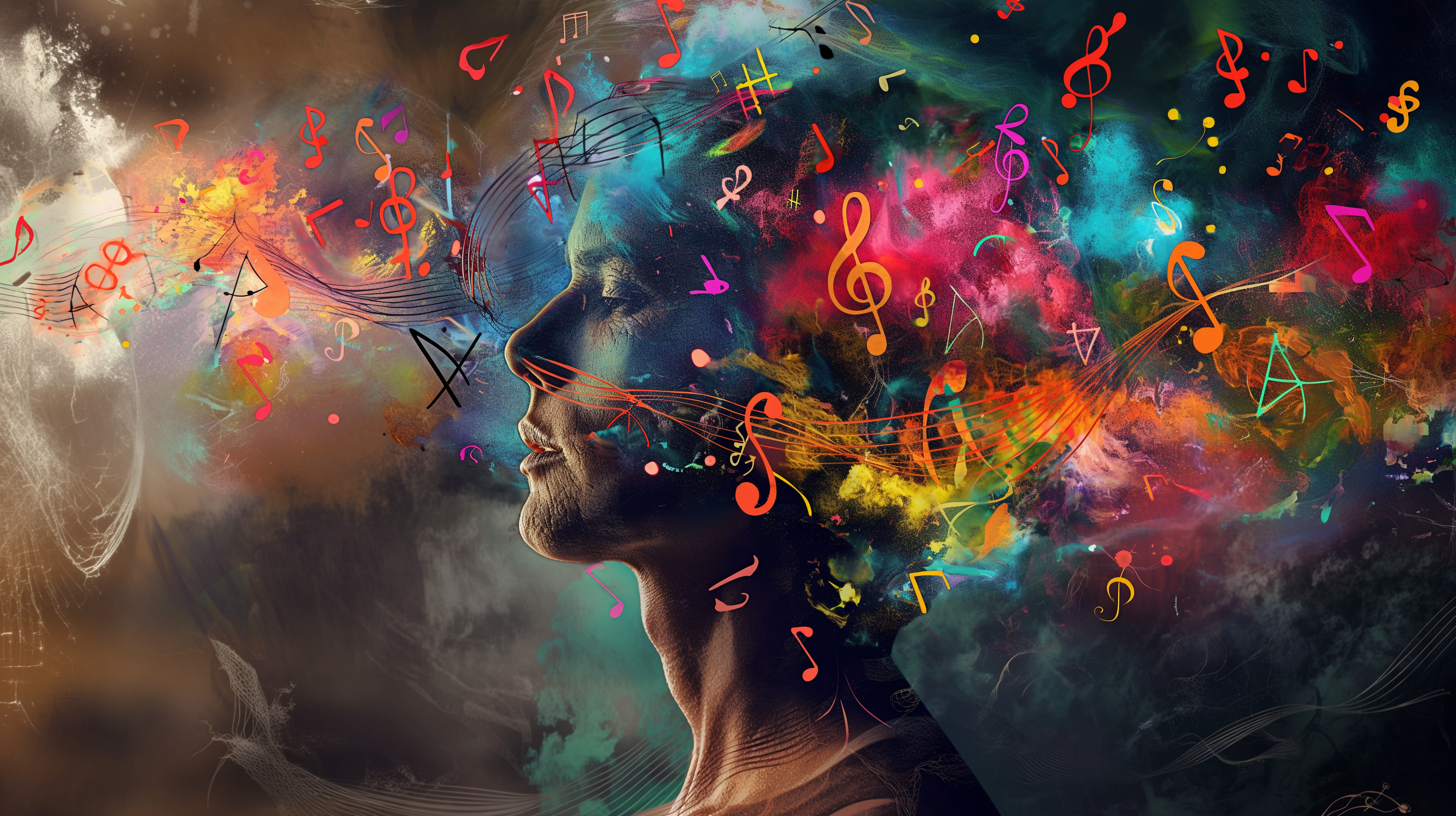
Dibakar Ghosh / How-To Geek | Midjourney
To solve this problem, approach AI music with a goal. Don’t let the music generator surprise you, but work for you instead. You should have a clear idea in your head and then use the tool to manifest that idea . To do this, ask yourself these questions:
- Is the song similar to an existing track?
- Will it be acoustic or feature-specific instruments?
- Will it be an instrumental, or do you want someone singing?
- Do you want a male singer or a female singer?
- What kind of tone or voice are you going for?
Having a clear vision helps you craft more precise prompts, resulting in AI-generated music that closely matches your intentions. For instance, I created a song for my girlfriend’s birthday and my barber’s wedding reception using AI. I already had an idea of a few personal anecdotes to put into the lyrics and also what genre to use for the song. As a result, I was able to generate a song that was truly special and fun, and both of them loved it a lot.
2 Decide on a Genre or Music Style
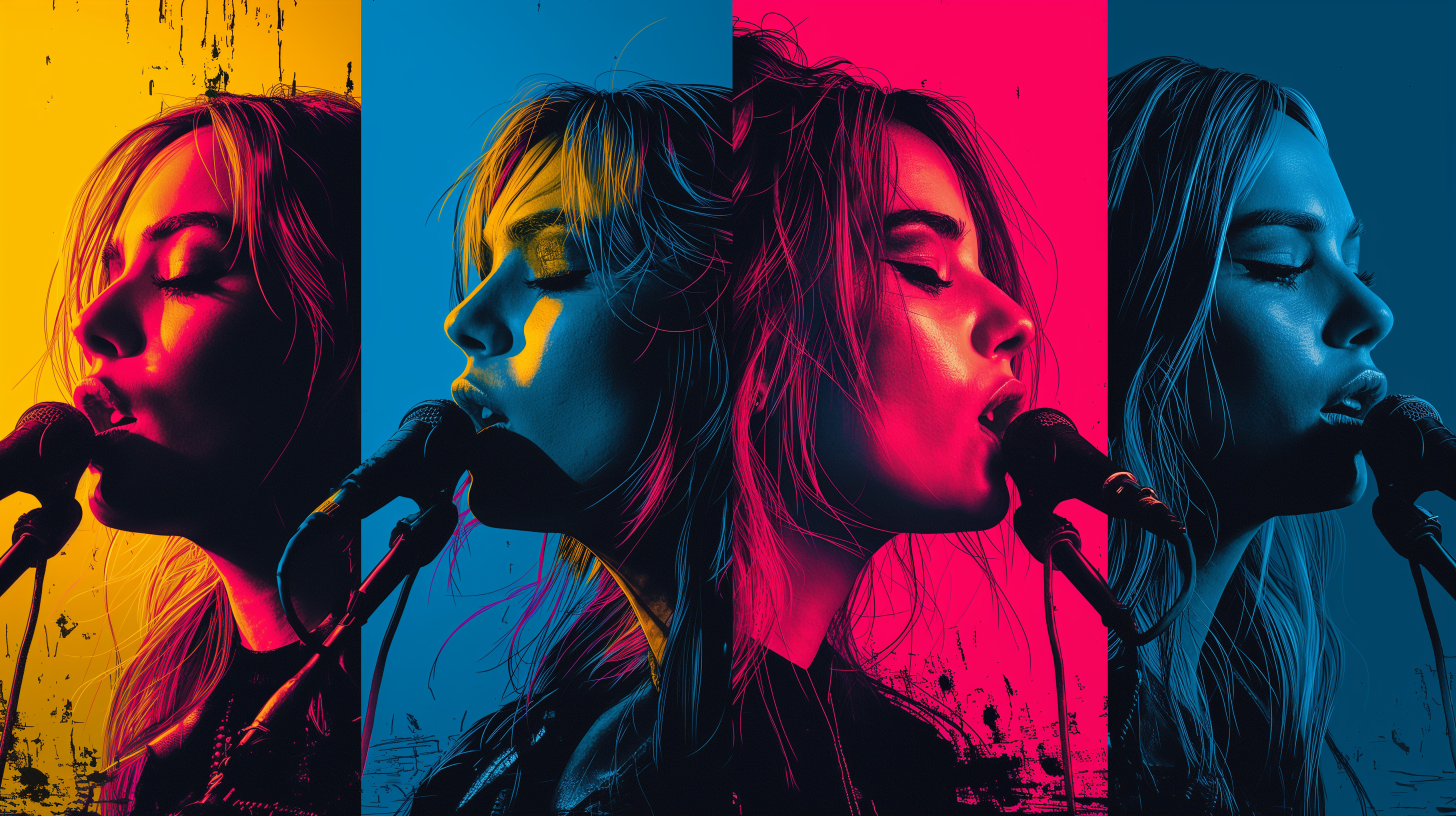
Dibakar Ghosh / How-To Geek | Midjourney
Now that you have an idea for a song, you need to articulate it. Most importantly, you need to specify the genre or music style of the song playing inside your head. Admittedly, this requires a bit of musical know-how, but you can potentially get around this by using AI.
For instance, is the song similar in sound or style to any other popular song you have heard? If yes, you can ask Claude or ChatGPT “ what is the genre and music style of this song?” and then use that in your prompt in the AI music generator.
Alternatively, you can also share your lyrics with ChatGPT and ask it:
I wrote some lyrics for a song. What do you think would be the genre or music style that’ll work best with these lyrics:
{insert lyrics}
Suno also has a great feature called Suno Explore , where you can find and test hundreds of different genres for ideation or inspiration.
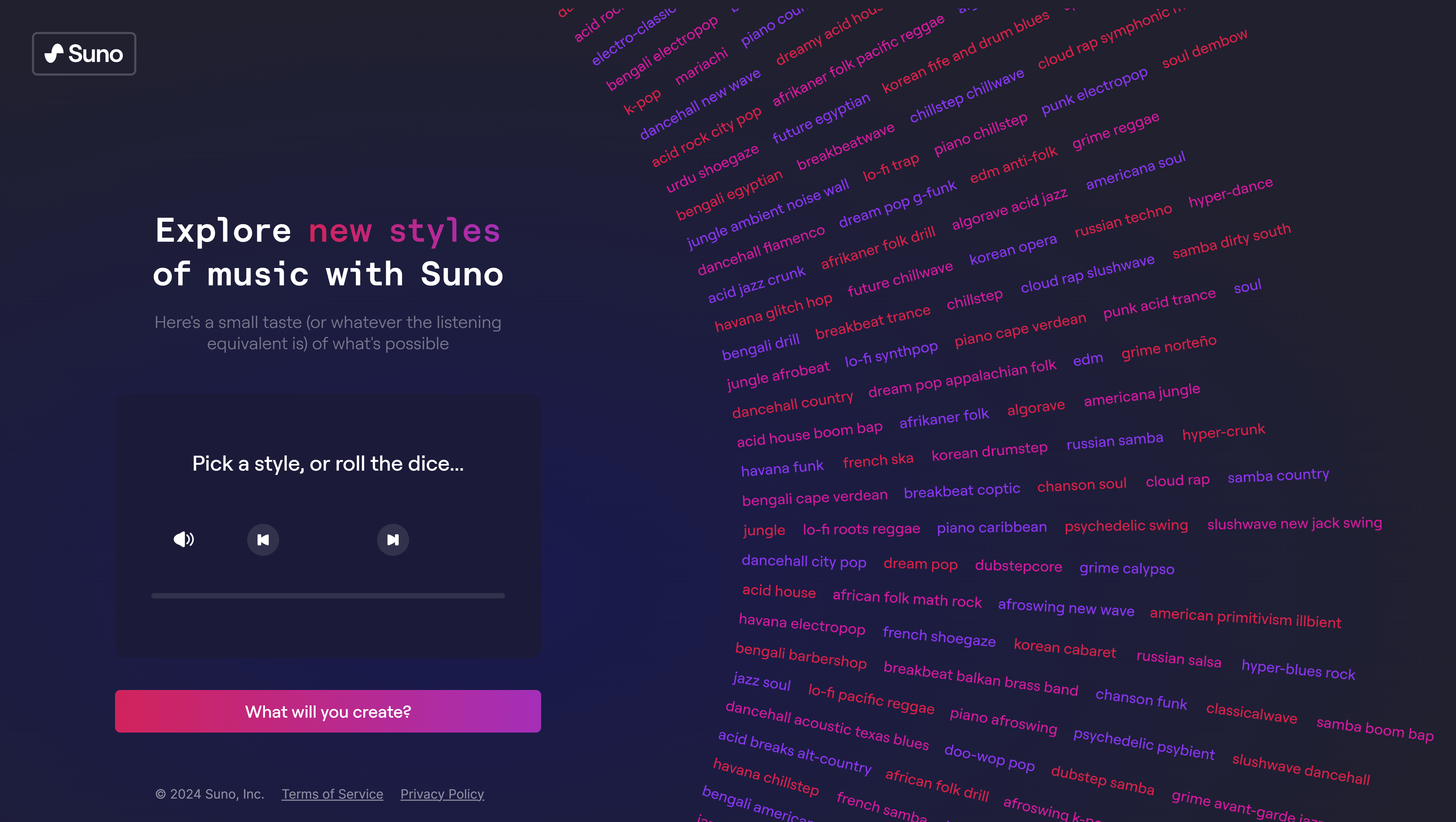
Remember, the more precise you are with your genre and style descriptions, the closer the AI will get to the sound you’re imagining. For instance, you can specify “party, upbeat, fast-paced Balkan brass instrumental, exciting and exhilarating” to get a specific sound and mood.
3 Generate the Lyrics Yourself or Using ChatGPT
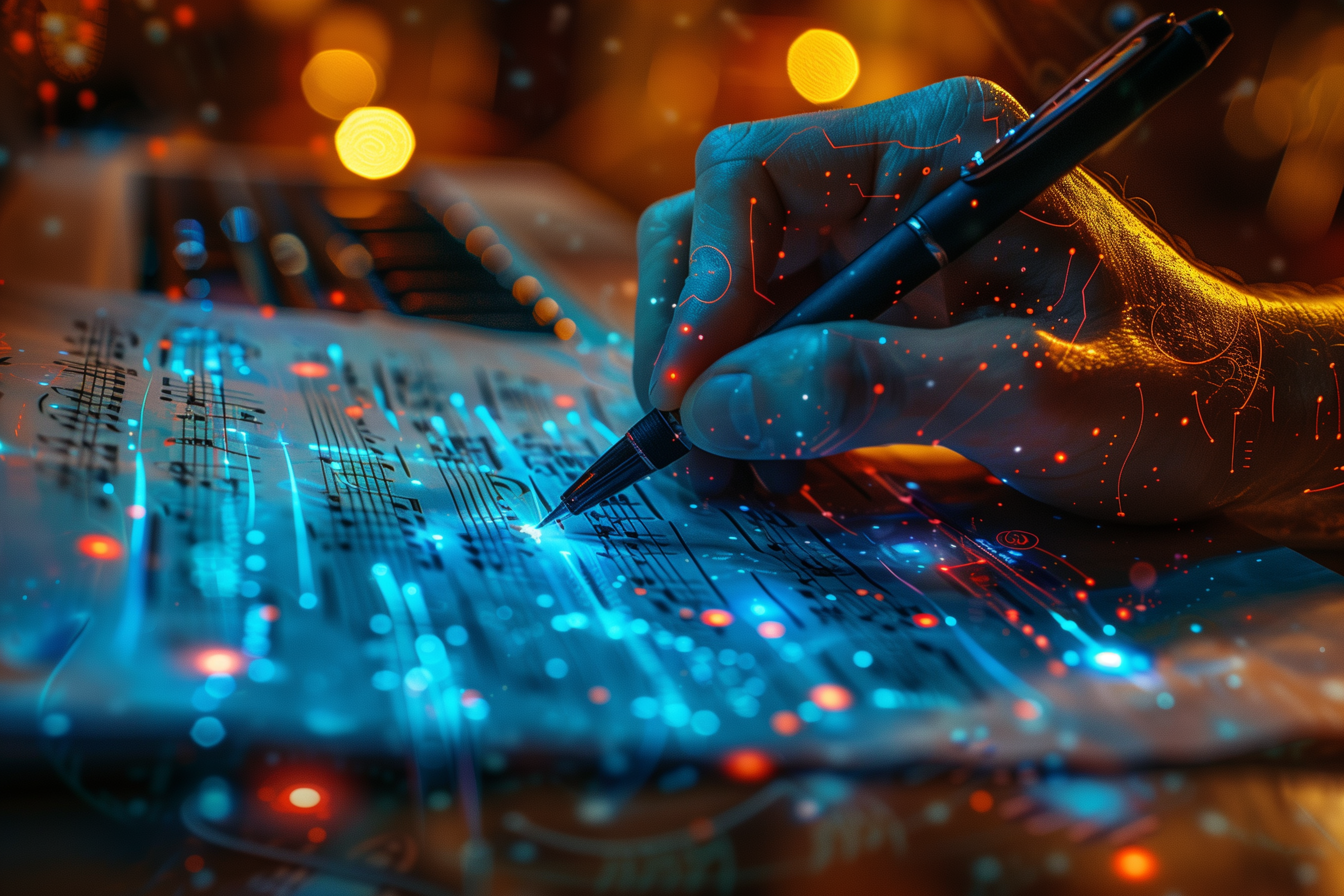
Dibakar Ghosh / How-To Geek | Midjourney
All the popular AI music generation tools support auto-generated lyrics, but they’re rarely any good. You’ll get the best results if you have your own lyrics to feed the AI model. But in case you don’t, you can use tools like ChatGPT to generate a few sample lyrics and build your own unique one.
Here’s a handy lyrics-generation prompt that I often use:
`You are a talented and quirky lyricist with a knack for crafting memorable, personality-filled lyrics. Your task is to help me write unique song lyrics that stand out and capture attention. Please follow these guidelines:
- Theme: [Insert your desired theme or topic here]
- Genre: [Specify the musical genre, e.g., indie rock, hip-hop, country]
- Mood: [Describe the overall mood or emotion you want to convey]
- Lyrical style: [Mention any specific lyrical techniques or styles you prefer, e.g., storytelling, metaphor-heavy, abstract]
Key elements to incorporate:
- Use vivid imagery and unexpected metaphors
- Include quirky or offbeat observations
- Employ wordplay, puns, or clever rhymes where appropriate
- Inject humor or wit if it fits the theme and mood
- Create memorable phrases or potential “hook” lines
- Avoid clichés and overused expressions
- Maintain a consistent voice or character throughout the lyrics
Structure:
- Generate lyrics for [verse/chorus/bridge], approximately [number] lines long - Include a suggested rhyme scheme if applicable
Additional notes: - Feel free to draw inspiration from unusual sources or make unconventional connections
- Don’t be afraid to be bold, provocative, or emotionally raw if it serves the song’s purpose
- Aim for lyrics that sound natural when spoken aloud
Please generate unique lyrics based on these guidelines. Be creative, take risks, and let your lyrical personality shine through!`
Now, your lyrics shouldn’t be structured like a poem and read like a wall of text. It should have identifiable elements like verses or chorus. You should also specify the instruments, vocalization techniques, sound effects, and much more. Popular AI music generation tools like Suno and Udio can pick on cues from well-structured lyrics and incorporate them into the finished track.
Include Meta Tags
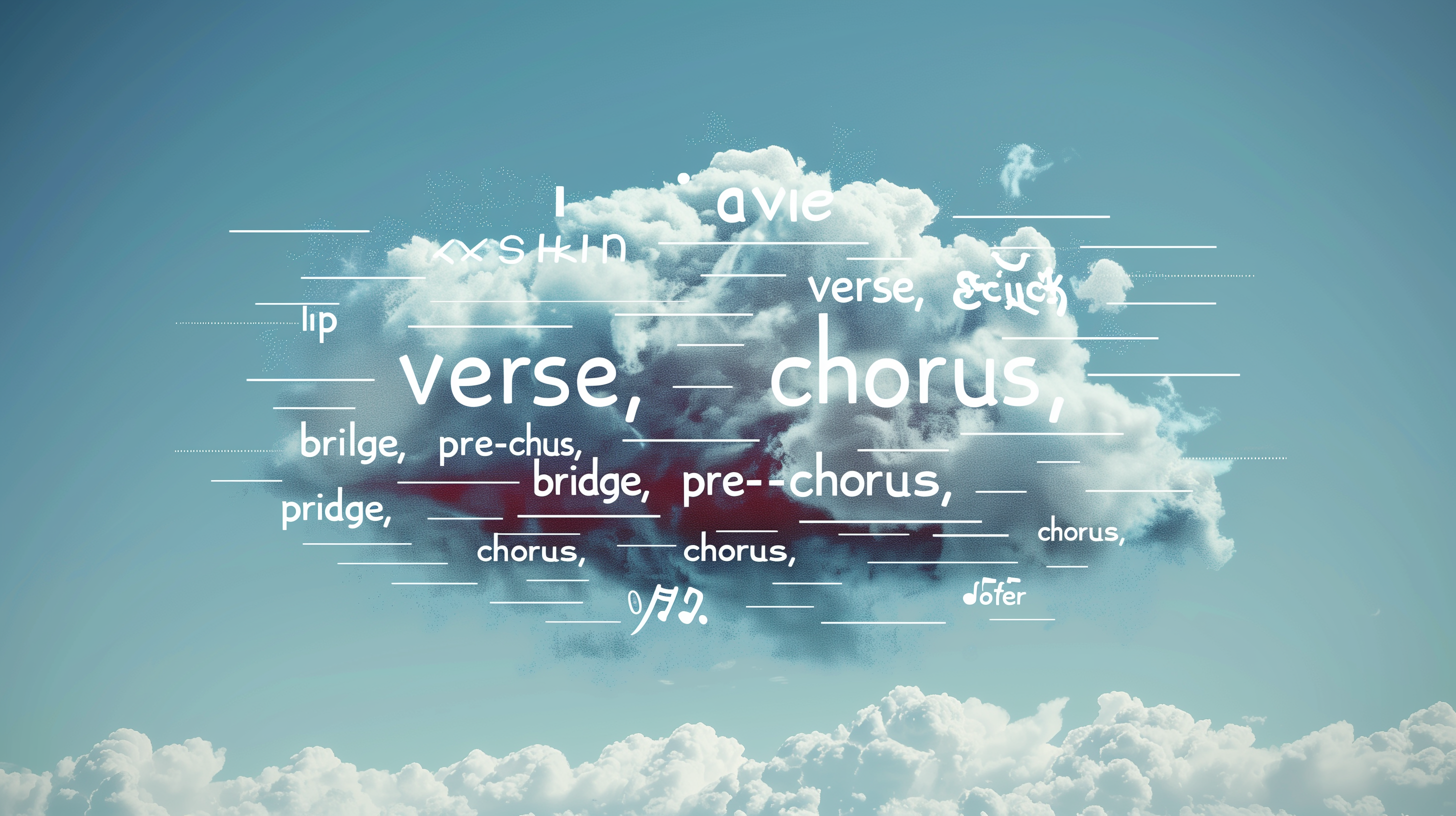
Dibakar Ghosh / How-To Geek | Midjourney
At minimum, you should use meta tags to provide structure to your lyrics and guide the AI as to how you want the song sung:
- Section labels: [intro], [verse], [pre-chorus], [chorus], [bridge], [outro]
- Voice specifications: [Verse 1: Male Vocalist: Dave], [Chorus: Female Vocalist: Sarah]
- Naming the vocalists ensures voice changes.
- Repeating chorus or verse: [Chorus: 2x] [Verse 2: 2x]
- Instrument solos: [guitar solo], [saxophone]
- Special effects: [fade out], [instrumental break]
Remember to use square brackets when specifying meta tags. The tools don’t seem to register round brackets or curly brackets.
Here are sample lyrics so you can get an idea of what this will look like:
`[Intro]
[Verse 1: Male Vocalist: John]
Clickety-clack, fingers on the attack
How To Geek’s got your back when your screen goes black
Troubleshootin’ wizards, we’re fixin’ your glitch
From code to hardware, we’ll scratch that itch
[Verse 2: Male Vocalist: Dave]
Motherboards cryin’, but we’re supplyin’
Solutions so fly, you’ll think your PC’s flyin’
Router’s got you down? We’ll turn that frown
Upside down, make your Wi-Fi crown you king of this town
[Chorus: All Vocalist: John and Dave]
How To Geek, we speak technique
Solvin’ your problems, no need to freak
Crash, freeze, or viral disease
We’ve got the cure, so chill with ease
[Verse 3: Male Vocalist: John]
Malware’s a nightmare, but don’t you fear
How To Geek’s here, makin’ tech crystal clear
We speak geek chic, from Linux to Mac
Unravelin’ riddles that make your brain crack
[Verse 4: Male Vocalist: Dave]
Pixels and bytes, we’ll set ‘em right
Turnin’ tech darkness into user-friendly light
So when your gadgets glitch and your patience thins
Remember How To Geek’s where your victory begins
[Chorus: All Vocalist: John and Dave] [2x]
How To Geek, we speak technique
Solvin’ your problems, no need to freak
Crash, freeze, or viral disease
We’ve got the cure, so chill with ease
[Outro: Male Vocalist: John and Dave]
From newbie to pro, yo, we’re in the know
Updatin’ your skills as technology grows
So boot up your trouble, we’ll make it bubble
Away like it’s nothin’, tech’s no longer trouble
[fade out]
`
Here’s what Udio produced with these lyrics and genre set to Hip-hop, energetic, East Coast hip-hop:
Your browser does not support the video tag.
Specify Instrumentals and Solos
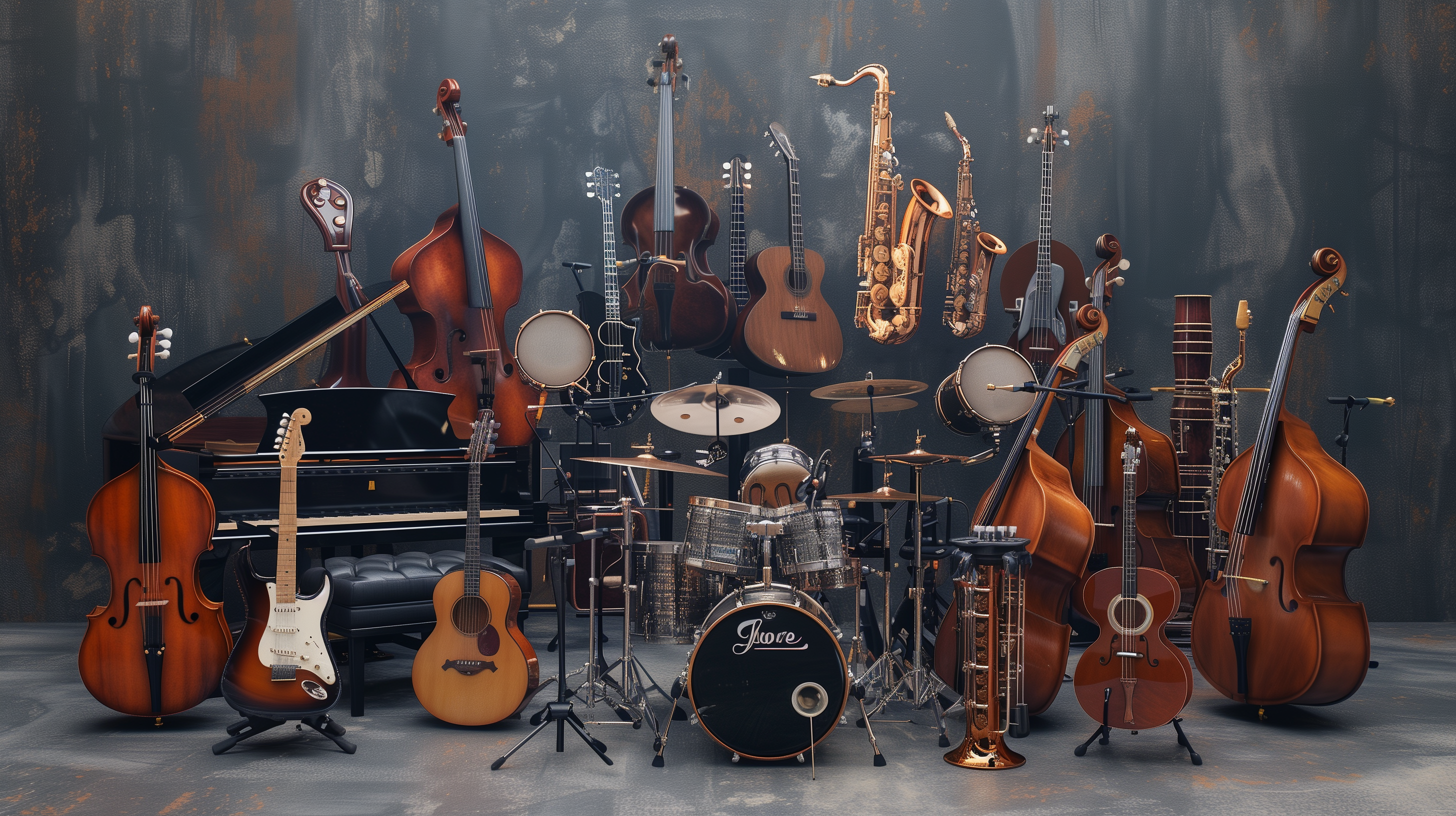
Dibakar Ghosh / How-To Geek | Midjourney
To keep your song from sounding stale and lifeless, you should sprinkle in different instrumental solos here and there. Use tags like:
- [Instrumental Break]
- [Guitar Solo]
- [Saxophone: jazzy riff]
- [classical piano], [organ], [bass piano]
- [violin solo]
Don’t add every single instrument to a track as the AI won’t know what to do with it and just ignore it. Instead, add instrument solos or riffs in places where they’d fit naturally in a normally produced song. That way, you’ll find success more often.
This level of detail helps create a richer, more dynamic song that aligns with your vision.
Incorporate Vocal Techniques and Sound Effects
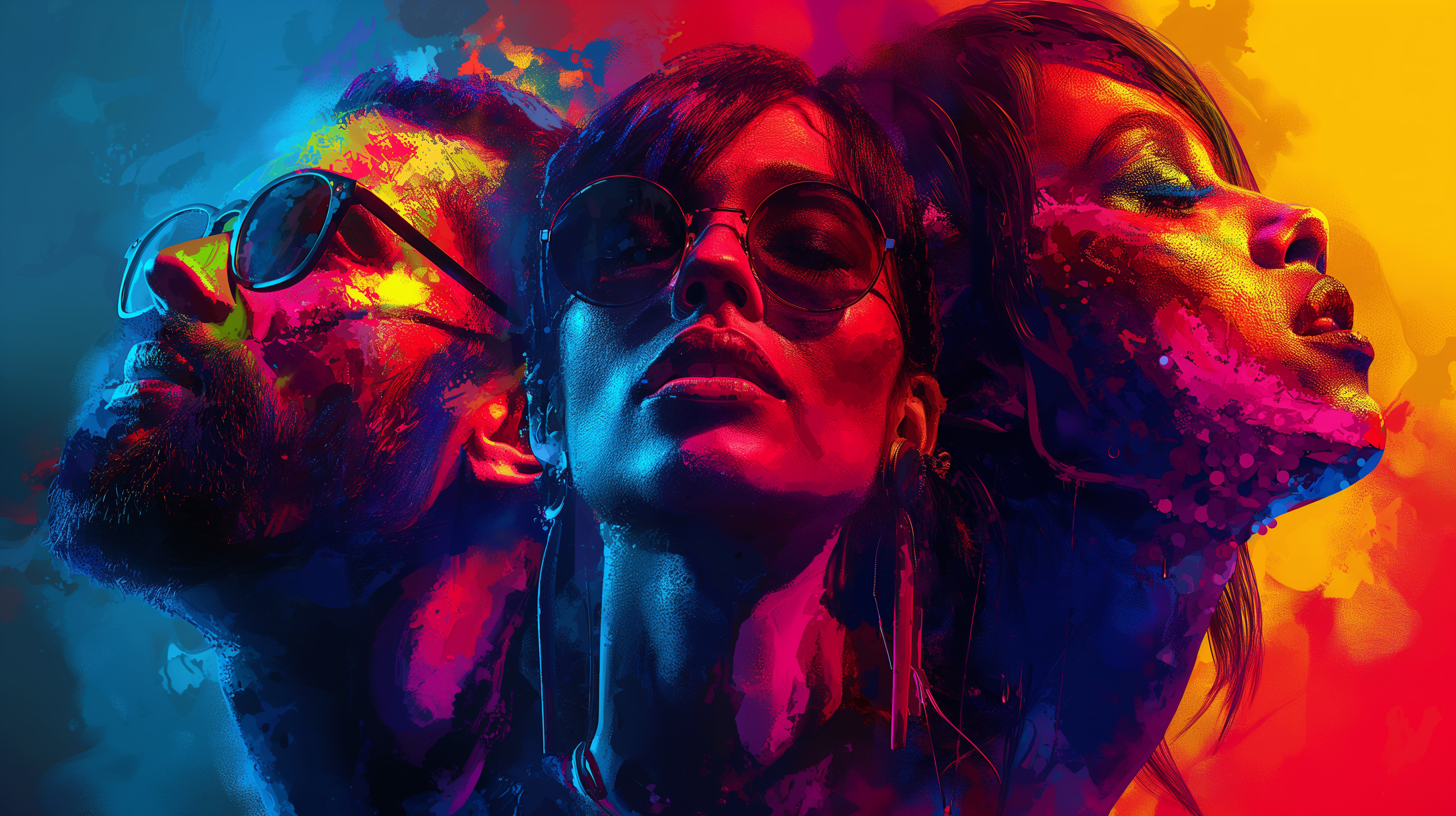
Dibakar Ghosh / How-To Geek | Midjourney
To add depth and emotion to your lyrics, consider using tags for various vocal techniques and sound effects:
- [spoken] for spoken word sections
- [scream] for intense moments
- [whispers] or [Whispers in the dark] for a mysterious atmosphere
- [cry] for emotional passages
- [crowd] for background vocals or audience sounds
Most AI music generation tools won’t always incorporate these vocal techniques and sound effects, even if you mention them. This is because they are trying to create a track that sounds good according to their training and thus can overlook or ignore certain prompts. That said, you shouldn’t shy away from these techniques and try them anyway, especially if you’re working in a genre like experimental rock or psychedelic, where these types of sound effects and vocal techniques make sense.
You can also throw in some non-word vocalizations like “Ooh, wah-ah-ah-ah!” (bonus points if you know where that’s from!) to infuse more substance into the tracks. These are usually easily captured and incorporated by most AI music generators.
Break Down Hard to Pronounce Words
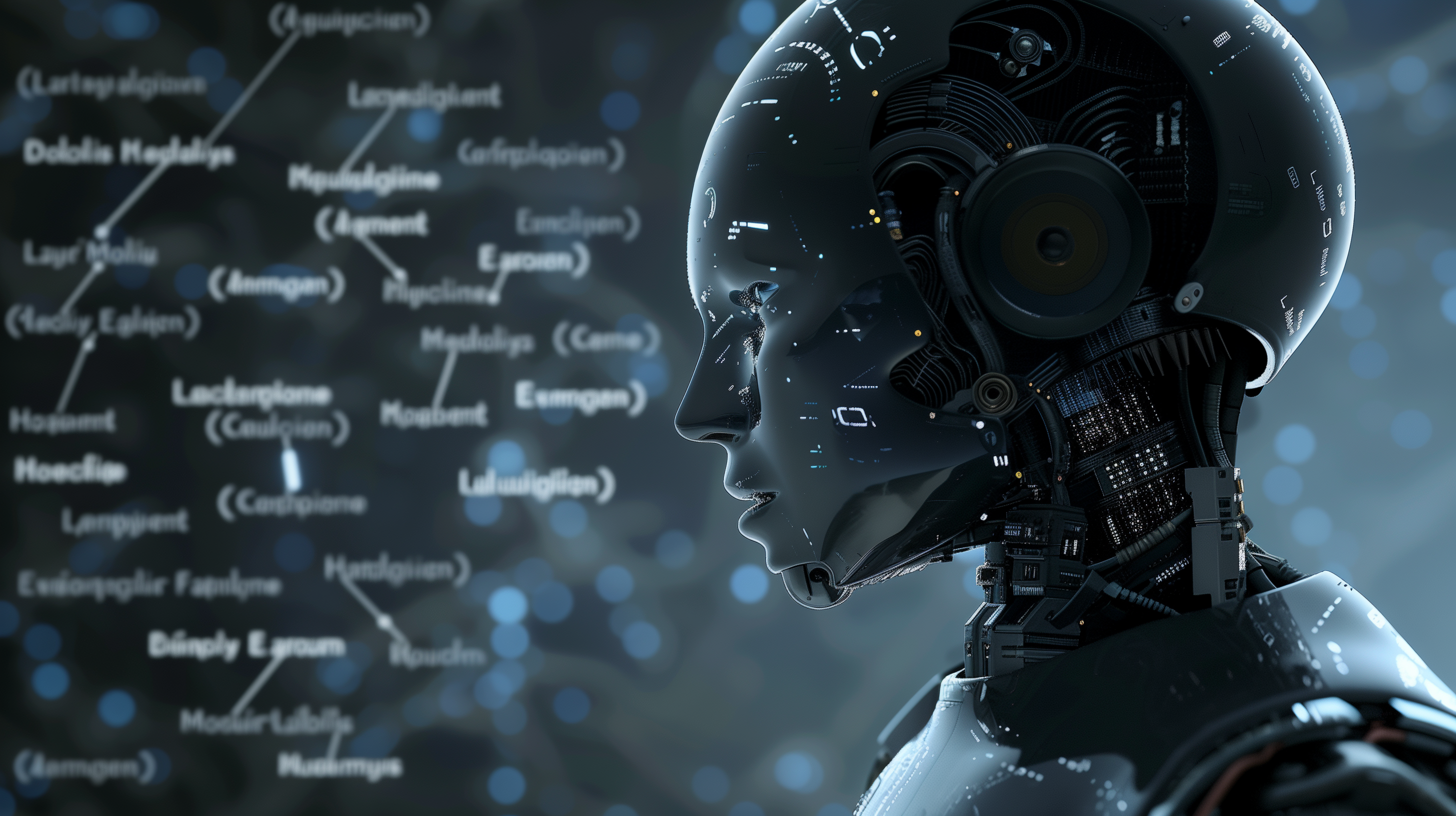
Dibakar Ghosh / How-To Geek | Midjourney
You might sometimes find the AI music generator struggling to pronounce some words. This usually happens with proper nouns like brand names, technical words, numbers, etc. In this case, to get the correct pronunciation, break down the work phonetically:
- “Utilization” becomes “Utili-zation”
- “Petaflops” becomes “Peta-flops”
- “Backpropagation” becomes “Back-propa-gation”
- “UDIO” becomes “U-D-I-O”
- “AMD” becomes “ay-em-dee”
- “991 FP16 TFlops” becomes “nine hundred ninety-one Eff-pee-sixteen tera-flops”
If at first you don’t succeed, try again with different phonetic break downs.
4 Experiment With Contrasts
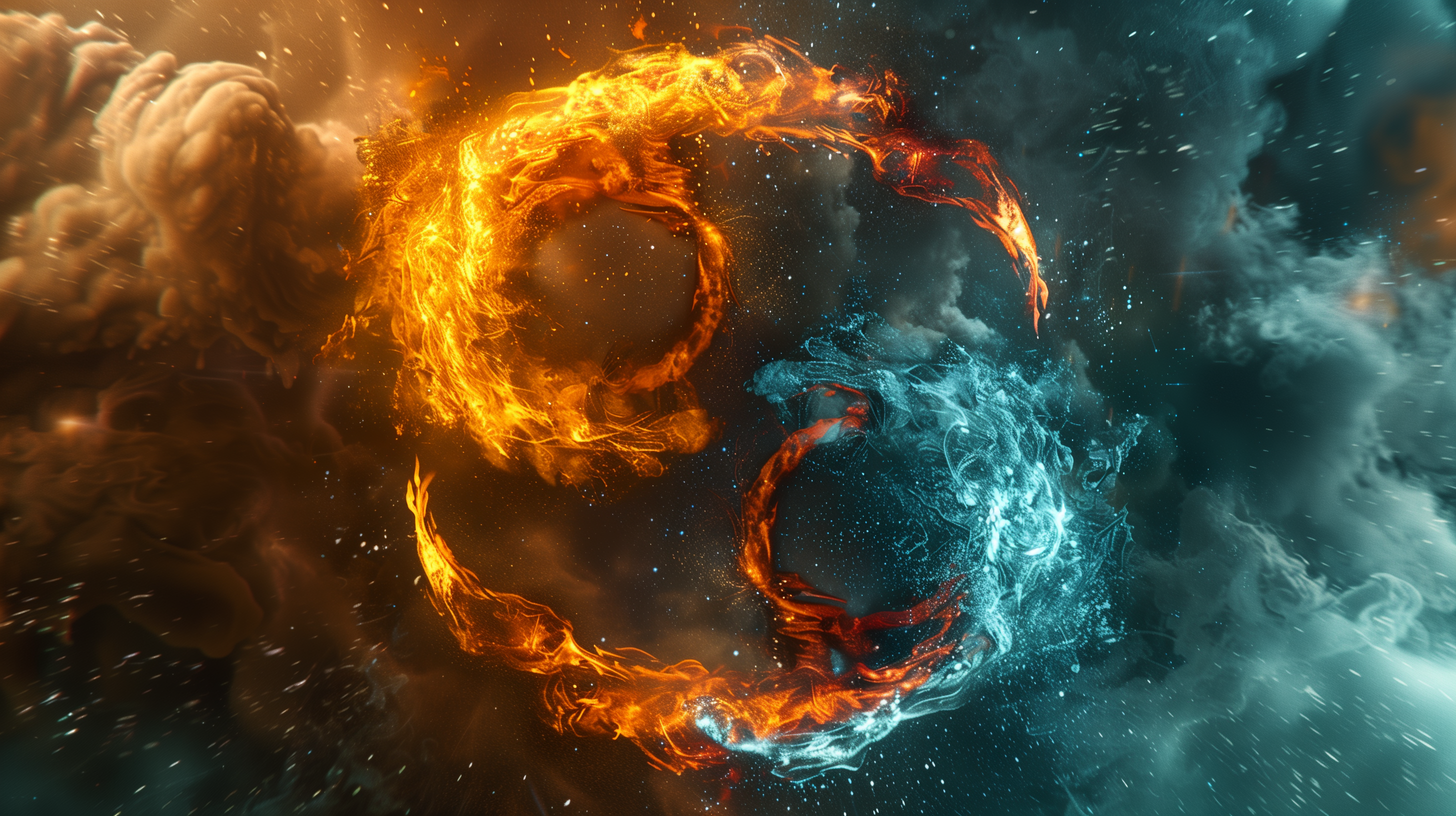
Dibakar Ghosh / How-To Geek | Midjourney
One of the most exciting aspects of the AI music generation is the ability to create unique and unexpected combinations. Don’t be afraid to mix contrasting genres, such as classical instrumentation with hip-hop lyrics. Try to combine different vocal styles within the same song, and experiment with unconventional song structures.
Create a contrast between your lyrics and the musical style. Try pairing serious lyrics with an upbeat melody or matching silly words with an intense musical backdrop. This juxtaposition can create interesting and memorable songs.
5 Use the Same Prompt and Lyrics With Different Tools
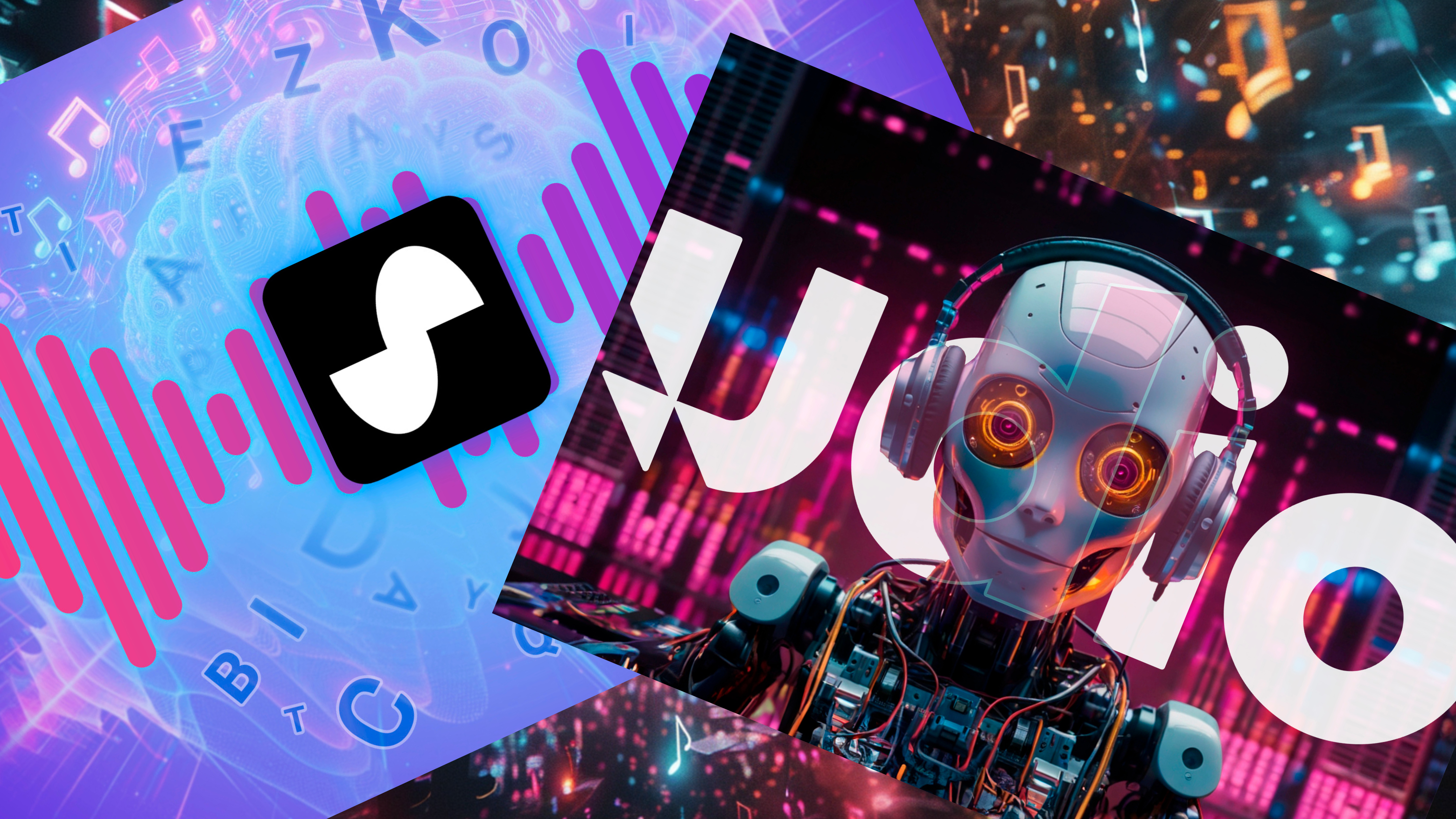
Lucas Gouveia / How-To Geek
Each AI music generation tool has its strengths and quirks. I’ve found that using the same prompt across different platforms can yield fascinating results. For example, try your prompt in both Suno and Udio. Compare how each tool interprets your lyrics and genre specifications.
I’ve discovered that Udio excels in English songs but struggles to pronounce more uncommon languages with regional dialects. For example, Udio is horrible at pronouncing Bengali words, my local language, but Suno nails it marvelously. By using multiple tools, you can leverage each of their strengths to create the perfect track.
Remember, the key to success in AI music generation is a combination of clear vision, attention to detail, and a willingness to experiment. Don’t be afraid to push the boundaries with your prompts and tags. The more specific and creative you are, the more unique and exciting your AI-generated music will be.
Also read:
- [New] 2024 Approved Crafting Irresistible Profile Videos
- [New] In 2024, Archive iTunes Content with Ease Using These Tips
- [New] Turning Still Memories Into Moments in Motion
- [New] Unbeatable Summer Movie List 10 Familial Classics
- [Updated] The Ultimate Guide to Fixing RTMP Streams in Premiere
- [Updated] TikTok Unboxing Hacks Spin Your Video Into a Viral Hit
- [Updated] Unlock the Power Scriptwriting for Popular Vlogs
- 2024 Approved The Ultimate List of 20 Magic Words for Marketing
- Bypassing Browser Requirement: A New User Guide
- Gratuit Online : Convertisseur Vidéo AVI en OGV Par Movavi
- Growth Hacking Tactics Boosting YouTube View Count Dramatically
- How to Archive Video Discussions with Ease & Security for 2024
- How to Stop Your PC From Crashing While Playing Euro Truck Simulator 2
- In 2024, Common YouTube Shorts When Thumbnails Disappear Without Notice
- Master the Art of Swift SRT to Text Transformation for 2024
- The Art of Shots Discover the Best Camera Angles for iPhones for 2024
- Unlocking Private Snapshares A Comprehensive Tutorial
- Title: Unlocking the Secrets to Producing an Unprecedented 1,000 Songs with Artificial Intelligence: Essential Tips Revealed
- Author: Christopher
- Created at : 2025-01-09 00:22:54
- Updated at : 2025-01-09 19:44:08
- Link: https://some-approaches.techidaily.com/unlocking-the-secrets-to-producing-an-unprecedented-1000-songs-with-artificial-intelligence-essential-tips-revealed/
- License: This work is licensed under CC BY-NC-SA 4.0.